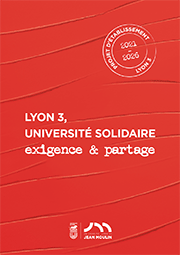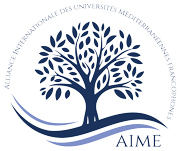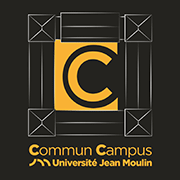AccueilRechercheProgrammes et productions scientifiquesThèsesThèses soutenuesThèses soutenues - 2006-2021Thèses soutenues - 2020
-
Partager cette page
- Recherche,
SEHIRLI NASIR Mervé
L'INFLUENCE DE LA CULTURE CATHOLIQUE SUR LES OEUVRES D'ALFRED HITCHCOCK et de PEDRO ALMODOVAR
Publié le 28 janvier 2021 – Mis à jour le 12 mars 2021
Thèse en Arts, cultures médiatiques et communication, soutenue le 18 février 2020.
La notion d’habitus représente un ensemble complexe et stable qui influence, d’une manière profonde, les actes, les attitudes, les jugements et les ?uvres. L’objectif de notre recherche est d’éclaircir les effets de l’habitus catholique dans les ?uvres d’Alfred Hitchcock et de Pedro Almodóvar, deux réalisateurs de cinéma qui sont d’époques et de cultures différentes, mais qui sont nés et ont grandi au sein des familles catholiques pratiquantes et qui ont eu une éducation caractérisée comme étant strictement religieuse. L’iconologie ou la science des images présuppose que la création d’une ?uvre d’art dépend de plusieurs facteurs qui associent à la fois l’éducation familiale et scolaire de son créateur ainsi que sa classe sociale et les conditions de l’époque où la création est réalisée. Dans ce contexte, nous nous servons de la méthode d’analyse en trois étapes (Analyses Pré Iconographique-Iconographique-Iconologique) développée par Panofsky qui montre efficacement la corrélation entre la création et la vision du monde du créateur (Weltanschauung). Cette vision manipule les choix et les intérêts artistiques (Kunstwollen). Dans la première partie de notre thèse, nous définissons la notion d’habitus et analysons les biographies des artistes. La deuxième partie traite l’analyse des thèmes omniprésents appartenant à la religion catholique. Nous finalisons notre thèse en analysant trois films de chacun de deux réalisateurs en se basant sur les thèmes catholiques pour comprendre les intentions des cinéastes en créant ses ?uvres (Vertigo, The Wrong Man, Marnie d’Hitchcock et Matador, Carne Tremula, Julieta d’Almodóvar) ainsi que leurs choix volontaires et instinctifs.
Mots-clés : Habitus, Catholicisme, Analyses iconologiques, ?ducation religieuse, Analyses cinématographiques.
The notion of habitus represents a complex and stable whole that profoundly influences acts, attitudes, judgements and works. The objective of our research is to clarify the effects of the Catholic habitus in the works of Alfred Hitchcock and Pedro Almodóvar, two film directors who are from different periods and cultures, but who were born and raised in practicing Catholic families and who have had an education characterized as strictly religious. Iconology or the science of images presupposes that the creation of a work of art depends on several factors that combine both the family and school education of its creator as well as his social class and the conditions of the time when the creation is realized. In this context, we use the three-step analysis method (Pre-Iconographic-Iconographic-Iconographic-Iconological Analysis) developed by Panofsky that effectively shows the correlation between creation and the creator's world view (Weltanschauung). This vision manipulates artistic choices and interests (Kunstwollen). In the first part of our thesis, we define the notion of habitus and analyse the biographies of the artists. The second part deals with the analysis of the omnipresent themes belonging to the Catholic religion. We finalize our thesis by analysing three films by each of the two directors based on Catholic themes to understand the intentions of the filmmakers in creating his works (Vertigo, The Wrong Man, Marnie d'Hitchcock and Matador, Carne Tremula, Julieta d'Almodóvar) as well as their voluntary and instinctive choices.
Keywords : Habitus, Catholicism, Iconological Analyses, Religious Education, Film Analyses
Directeur(trice) de thèse : Jean-Pierre ESQUENAZI
Membres du jury :
- M. Jean-Pierre ESQUENAZI, Directeur de thèse, Professeure des universités émérite, Université Jean Moulin Lyon 3,
- Mme Sonia KERFA, Professeure des universités, Université de Grenoble Alpes,
- Mme Isabelle LE CORFF, Professeure des universités, Université de Bretagne Occidentale, Brest,
- M. Martin BARNIER, Professeur des universités, Université Lumière Lyon 2.
Président(e) du jury : Martin BARNIER
Documentation
Mise à jour : 12 mars 2021







